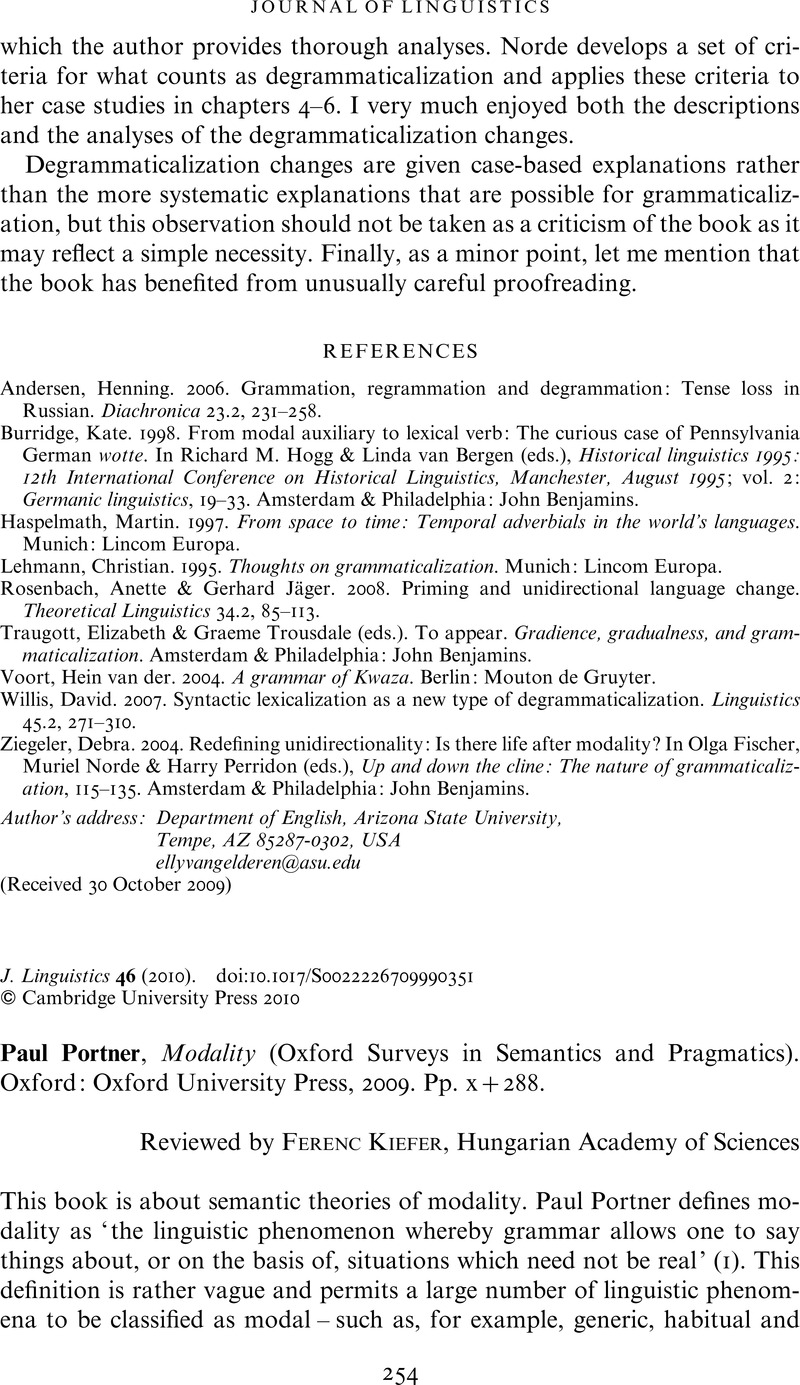Crossref Citations
This article has been cited by the following publications. This list is generated based on data provided by Crossref.
Bekhta, Ivan
Bondarchuk, Nataliya
Marchuk, Oksana
and
Bialyk, Vasyl
2021.
Processing Modality of British Modernist and Postmodernist Fiction.
p.
81.
Nurieva, N. S.
and
Razheva, E. S.
2023.
Linguistic Means of Expressing Epistemic Modality in an English-language Scientific Text.
NSU Vestnik. Series: Linguistics and Intercultural Communication,
Vol. 21,
Issue. 2,
p.
63.





